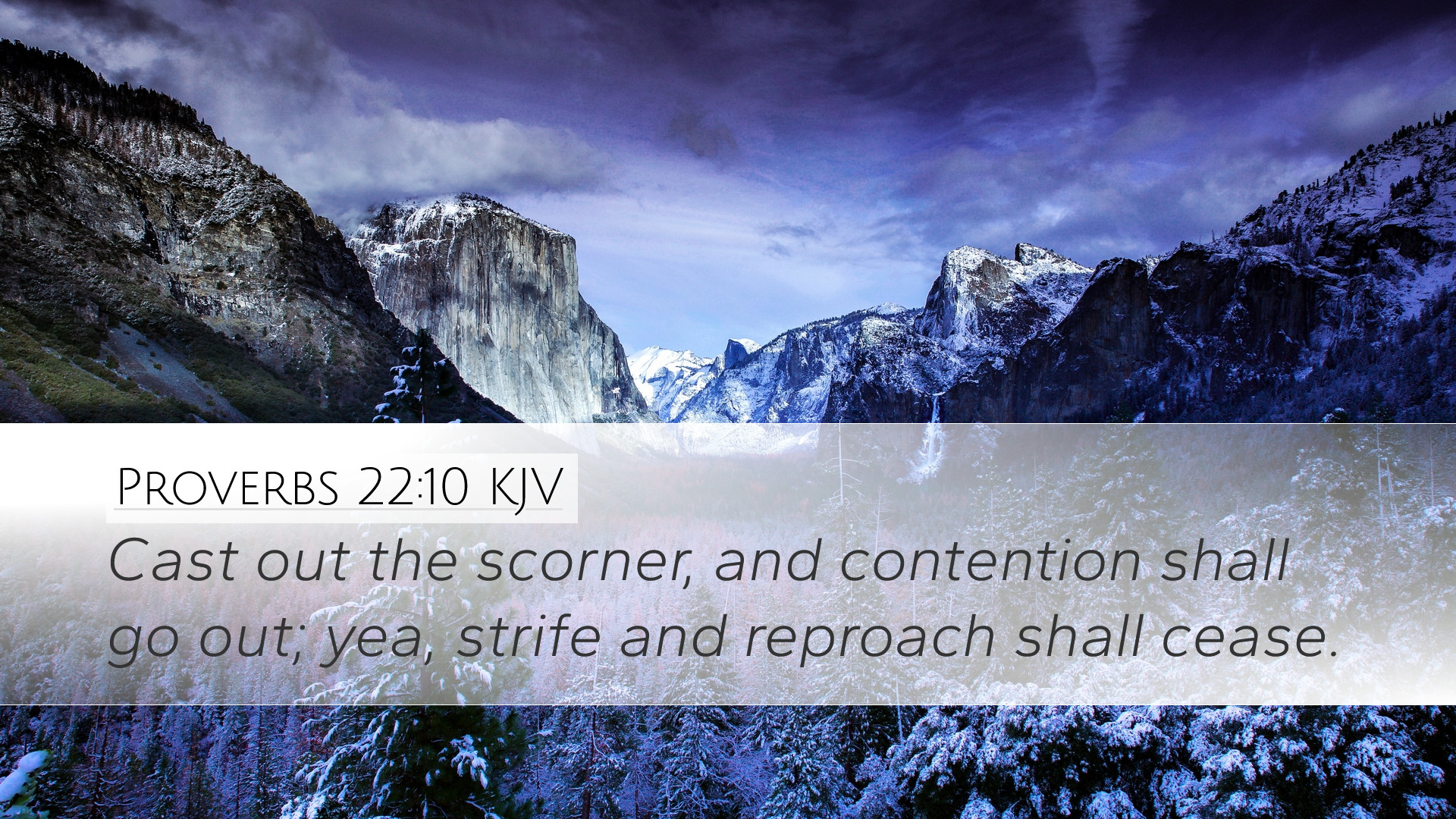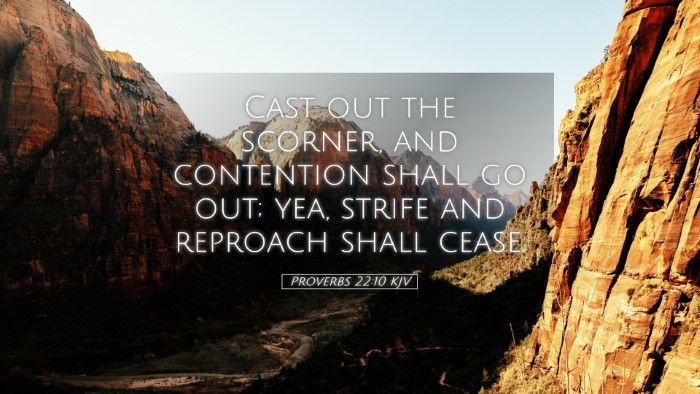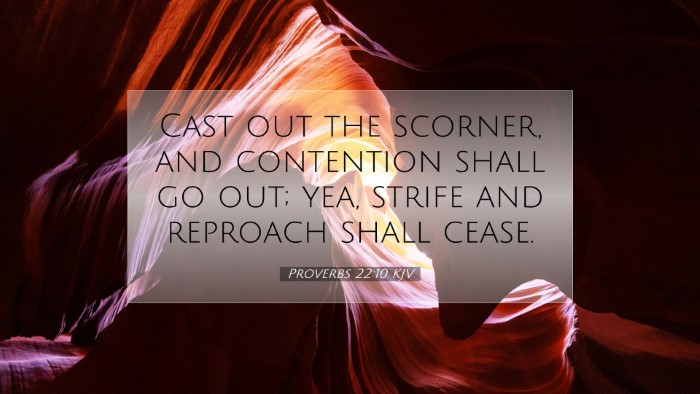Commentary on Proverbs 22:10
Verse: "Cast out the scorner, and contention shall go out; yea, strife and reproach shall cease."
Introduction
The verse draws attention to social harmony and the importance of removing antagonistic influences within a community. Public domain commentaries shed light on the underlying principles related to this verse, emphasizing moral conduct, the influence of individuals on communal life, and the significance of wisdom in relationships.
General Insights
In light of the rich insights from Matthew Henry, Albert Barnes, and Adam Clarke, we can gather a multi-faceted view of the implications and applications of Proverbs 22:10:
- Purpose of the Proverbs: The Book of Proverbs is designed to impart wisdom and promote moral excellence. This specific verse illustrates the practical removal of negativity to foster peace.
- The Scorner Defined: The term "scorner" refers to individuals who mock, ridicule, and exhibit disdain for wisdom and virtue. Such individuals are disruptive and destructive to the social fabric.
- Consequences of Scorn: Engaging with scorners leads to contention, strife, and reproach. Their presence promotes agitation and discord, hindering the pursuit of righteous living and communal peace.
Commentary Insights
From Matthew Henry
Henry emphasizes the necessity of removing those who stir discord:
- Restoration of Peace: By casting out the scorner, one can expect restored peace. The divine wisdom embedded in this proverb suggests that maintaining fellowship requires addressing detrimental influences.
- The Nature of Contentiousness: Henry notes that scorners often amplify strife, serving as catalysts for contention. Removing them is essential for spiritual and social tranquility.
From Albert Barnes
Barnes presents an extensive analysis of the verse, focusing on practical advice:
- Social Dynamics: He stresses that social harmony is dependent not only on individual conduct but also on the collective atmosphere free from disruptors.
- Strife and Reproach Defined: Barnes elaborates on the terms "strife" and "reproach," indicating that the presence of a scorner leads to a cycle of conflict and shame, which can be broken only by exclusion.
From Adam Clarke
Clarke's remarks provide historical context and practical interpretation:
- Importance of Leadership: He highlights the role of leaders in recognizing and addressing the presence of scorners, underscoring the responsibility of those in authority to foster a peaceful environment.
- Principle of Separation: Clarke reinforces the idea that separating from divisive elements is a hard yet wise decision that can yield fruits of peace and goodwill in the community.
Theological Implications
The theological implications of this verse cannot be overlooked. The teachings encapsulated in Proverbs 22:10 align with the broader biblical narrative of seeking peace and reconciliation:
- Call to Wisdom: The exhortation to remove scorners reflects God’s call for His people to pursue wisdom (James 3:17), which is characterized by peace and purity.
- Role of the Church: The Church, as the body of believers, must take heed to this directive to ensure the unity of the Spirit in the bond of peace (Ephesians 4:3).
- Encouragement for Leaders: This scripture serves as a reminder for pastors and leaders to foster environments where wisdom prevails and to deal decisively with those who cause division.
Practical Applications
For pastors, students, and theologians, Proverbs 22:10 offers several practical applications:
- Evaluating Relationships: Regular reflection on one’s relationships and their impact on personal and communal peace is vital.
- Fostering Community Values: Emphasis should be placed on encouraging a culture of respect, wisdom, and constructive dialogue in congregations and communities.
- Decisive Action Against Contention: Leaders should be proactive in addressing conflict and removing divisive influences to cultivate a spiritually healthy environment.
Conclusion
Proverbs 22:10 presents a profound truth that resonates through the ages: the need to eliminate scorn and contention for the sake of peace and harmony. As reflected in the commentaries of Henry, Barnes, and Clarke, this verse is not merely about the act of exclusion but encompasses a greater divine wisdom and call towards fostering a community built on the principles of love, respect, and understanding. By applying these insights, believers can create spaces that reflect the character of Christ, promoting reconciliation and unity.


